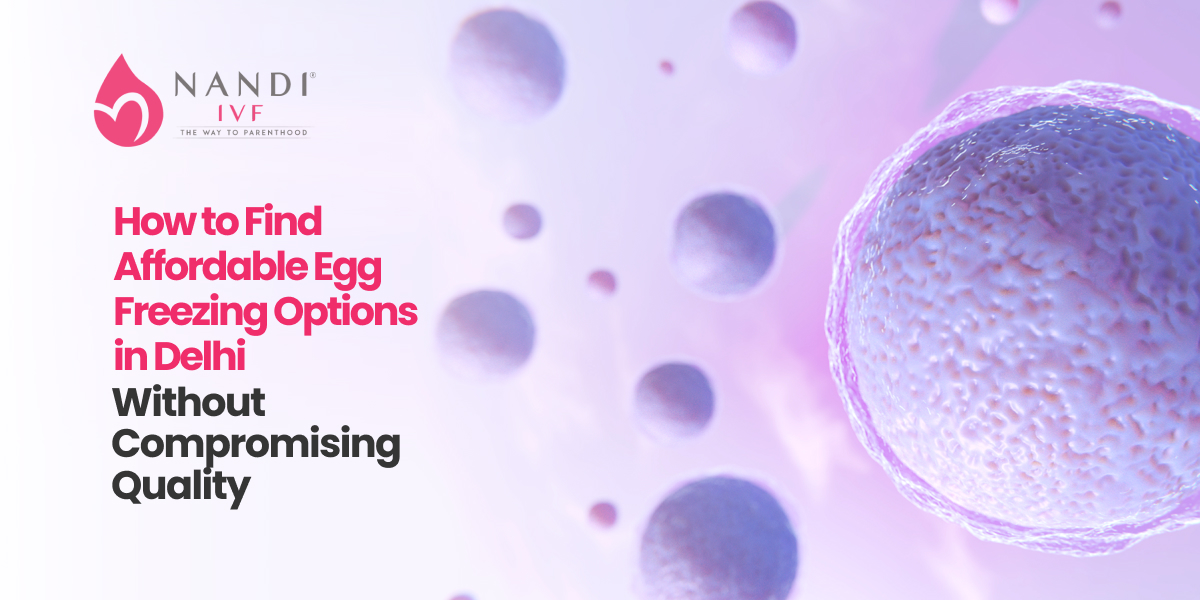A gynaecologist is a doctor with a concentrated specialisation in the female reproductive system, including conditions such as pregnancy, the health of ovaries, menstruation, etc. Some gynaecologists are also obstetricians. That is, they specialise in delivering a child after the completion of pregnancy. There are various reasons one may need to visit a gynaecologist. It is advised that to maintain the health of the reproductive system, one should get regular check-ups.
Dr. Payal Bajaj, one of the best and most highly reputable gynaecologists, is an IVF specialist in Delhi. She helps provide a detailed explanation and solution to any condition concerning the female reproductive system.
8 Reasons to See a Gynecologist
It is a common misconception that people who want to conceive a child or are already pregnant are the only ones who can consult a gynaecologist. However, women can see a gynaecologist right from when they hit puberty. The primary reasons for which one can visit and consult a gynaecologist are as follows:
General Reproductive Health
One primary and most straightforward reason to visit a gynaecologist is to check and maintain general gynaecological health. The recommended interval between two checkups should be a maximum of one year. These ensure the early detection of any condition or issue.
Irregular Menstrual Cycle
If you have irregular periods or you miss your periods frequently, then that could signify a more significant problem. Visiting a gynaecologist can help you understand the reason behind irregularities and help you regulate them. You should also visit if your menstrual cycle suddenly becomes larger or shorter or if the flow becomes heavier or lighter than usual.
Birth Control
Another common reason to visit a gynaecologist is when you are sexually active and want to avoid pregnancy. The gynaecologist can recommend the best option for your health, allergies, and other concerns. You can choose one as per your lifestyle.
Breast Exam
Along with checking your reproductive health, your gynaecologist can also ensure your breasts are healthy. With your annual checkup, they will include a manual breast exam that can help ensure no lumps are present. This is a preliminary step to avoid the risk of breast cancer and to detect it in the early stages.
Sexually Transmitted Diseases
Sexually transmitted diseases or STDs can become serious issues if left untreated. The genital area, being moist, can lead to exponential bacterial growth. Thus, if you get an STD, visiting a gynaecologist can help you treat it and avoid discomfort and future issues.
Infertility
Another reason one can visit a gynaecologist, such as an expert IVF doctor in Delhi, Dr. Payal Bajaj, is to find and solve the cause of infertility. Any patient who has been trying to conceive a child for more than a year should visit a fertility specialist. They can help you treat the underlying cause of infertility. They can also best consult you on IVF treatment cost in Delhi if that’s the option that you would like to choose.
Ulcers
If you have ulcers or wounds on your vagina or vulva, you should consult a gynaecologist immediately. These can be infections caused by STDs or UTIs. Sometimes, they are extremely painful, while sometimes, they may not cause any pain.
Pelvic Inflammatory Diseases
This is also an infection in the female reproductive system that might happen because of an STD. The bacteria can spread through the uterus, ovaries, fallopian tubes, and other system parts. This growth of bacteria can cause immense pain in the pelvic region of the body and irregular vaginal discharge.
Top Gynaecologists in Delhi – Dr. Payal Bajaj
You will find various options for gynaecologists in Delhi. While researching, make sure that you choose one that has the qualifications and experience and positive reviews from past patients. One such IVF doctor in Delhi is gynaecologist, Dr. Payal Bajaj.
Here is a brief on her expertise in reproductive health, especially infertility and IVF treatments.
Expertise and Recognition
- Over 18 years of experience in the field. She specialises as an obstetrician, gynaecologist, reproductive endocrinologist, and infertility specialist.
- Her academic journey, marked by numerous awards, includes an MBBS from Lady Hardinge Medical College, a DGO from VMMC & Safdarjung Hospital, and advanced reproductive medicine training from prestigious institutions in India and abroad.
- A Diploma in Reproductive Medicine from the University of Keil, Germany.
- ISAR training certificate in Reproductive Medicine from St. Mother’s Hospital, Japan, under the guidance of renowned Dr. Atsushi Tanaka.
- Experience in providing an unfailing IVF treatment with a specialisation of patients having low ovarian reserves, repeated or multiple miscarriages, or multiple IVF failures. She has an impeccable track record of consulting and providing the best IVF procedure cost in Delhi, India.
- A member of India’s various gynaecological and infertility societies, such as IFS, ISAR, DGF, FPS, etc.
Importance of a Regular Gynecologist Check-up
A regular gynaecologist check-up requires multiple tests during the session. These tests ensure the proper maintenance of your reproductive health to curb the abnormalities at an early stage.
Here are some tests that are included in a gynaecological exam:
- Evaluation of vaginal discharge. This examination is necessary when testing for sexually transmitted diseases (STDs). The gynaecologist will take smears of the discharge to test against herpes, gonorrhoea, chlamydia, etc.
- They will conduct ultrasound during pregnancy to ensure that the fetus does not have any abnormalities.
- They also conduct tests against cancer, tumours, and more. Based on the evaluation, they will suggest the appropriate treatment, medicines, etc.
What to Expect During a Gynecologist Checkup?
If you are scheduling your first gynaecologist check-up and are apprehensive about what to expect, here’s a general overview.
- First, the gynaecologist will review your personal medical history. These include your weight, whether you have diabetes, have any allergies, etc. They will also evaluate your immediate family’s medical history.
- They might also ask questions based on your eating and exercising routine, alcohol intake, smoking, drug usage, sexual activity, etc.
- They will also evaluate your stress levels to ensure that there is no external influence on your hormonal balance and reproductive health.
- Then, the gynaecologist will ask you questions about your concerns. You can tell them whether you have unusual vaginal discharge, irregular periods, pain during urination, pain during vaginal penetration, etc.
- Based on your concerns, the gynaecologist will ask for a urine sample, a blood sample, and a vaginal discharge sample.
- If your concerns are pregnancy, birth control, infertility, etc., then they will advise you on the best pregnancy care as per your lifestyle. You can also consult them about menopause and how to best care for your reproductive and overall health.
- You can consult them regarding IVF treatments. Trusted and certified doctors such as Dr. Payal Bajaj can help you understand the IVF charges in Delhi, the best options for your lifestyle and health, and various other factors.
How to Maintain a Good Reproductive Health?
The female reproductive system maintains a balance of hormones. To maintain this precarious balance, one must lead a healthy lifestyle overall. Here are some ways recommended by gynaecologists that can help you prevent various reproductive health and organ-related diseases.
Practice Safe Sex
One of the most overlooked yet important aspects of reproductive health is practising safe sex. Some STDs, such as AIDS, are incurable. Thus, you need to ensure that your sexual partner and you are both tested against all sexually transmitted diseases before engaging in intercourse. You can also use condoms and other contraceptives to ensure that you are safe against diseases.
Calcium-rich Diet
Make sure you intake enough calcium and magnesium in your diet. Magnesium helps to avoid sugar cravings, depression, dizziness, and headaches. On the other hand, calcium helps you overcome fatigue caused by menstruation, cravings, etc. Including sesame seeds, lentils, avocado, green leafy vegetables, nuts, etc., can ensure you get the recommended percentage of both minerals in your body.
Quit Smoking
Smoking has been shown to affect reproductive health, especially ovaries and uterus, in various studies. Smoking during pregnancy can cause the child to grow with congenital abnormalities. It has also been proven to cause cancer and coronary issues.
Trusted Infertility Treatment in Delhi
Are you looking for a trusted, positively reviewed, maximum-success IVF treatment in Delhi? Dr. Payal Bajaj, working at Nandi IVF, is one of the best doctors in the field. With her immense experience, keen interest in the field, and years of research, she is counted as one of the best IVF specialists in Delhi.
- She follows the best-laid practices and ethical approach to deliver a successful IVF treatment.
- She has also worked towards women’s empowerment through various organisations and clubs. She is deeply interested in spreading awareness about reproductive health and how women can prevent various diseases related to their reproductive organs.
- A published author in renowned journals, national and international, she has proven to be a pioneering gynaecologist specialising in IVF treatment.
- She can also help you by consulting you on issues such as menstrual cycle, menopause, emergency gynaecological care, etc.
You can also reach out to her to get advice and treatment in cases of sterilisation, contraception, same-sex issues, etc. Connect to schedule a consultation with Nandi IVF’s experts and get the treatment for the best IVF cost In Delhi.










